Kubernetes
Updated: July 31, 2023
Kubernetes, often abbreviated as K8s, is an open-source container orchestration platform developed by Google. It provides a powerful and scalable solution for automating the deployment, scaling, and management of containerized applications. Kubernetes allows developers to define application configurations and desired states, and then automatically handles the deployment and scaling of containers to meet those requirements. It simplifies the management of containerized applications by abstracting away the underlying infrastructure complexities and offering features like automatic load balancing, self-healing, and rolling updates. Kubernetes has become a standard in the world of cloud-native application development, enabling organizations to efficiently manage and scale their containerized workloads across various cloud environments and on-premises infrastructure.
Kubernetes is a platform that allows to manage a cluster of Linux containers as a single system to accelerate Dev and simplify Ops with Kubernetes by Google.
See also: Top 10 Virtualization platforms
See also: Top 10 Virtualization platforms
2020. Pure Storage acquires data-management platform Portworx for $370M
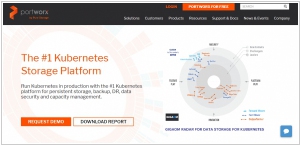
Public enterprise data storage company Pure Storage has made a significant announcement today. It has acquired Portworx, a well-funded startup that specializes in delivering a cloud-native storage and data management platform built on Kubernetes. The acquisition, which involved a cash transaction of $370 million, represents Pure Storage's largest acquisition to date, highlighting the increasing significance of the multicloud data services market. Pure Storage intends to leverage Portworx's technology to expand its hybrid and multicloud offerings, enabling the provision of Kubernetes-based data services across various cloud environments.
2020. Azure Arc brings its Kubernetes service into public preview
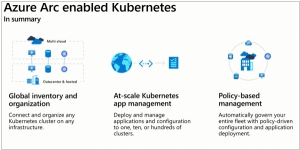
Microsoft has unveiled that Azure Arc, its cloud resource management service designed to operate across various environments, including rival clouds such as AWS and GCP, as well as platforms like Red Hat's Open Shift, is introducing Azure Arc-enabled Kubernetes in its public preview. This update empowers users to configure and oversee Kubernetes clusters across their data centers, edge locations, and public clouds. Additionally, Microsoft announced the inclusion of support for SUSE Linux Enterprise Server and the SUSE CaaS Platform within Azure Arc's capabilities.
2020. VMware to acquire Kubernetes security startup Octarine and fold it into Carbon Black
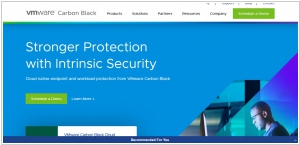
VMware made an announcement today regarding its plan to acquire the early-stage Kubernetes security startup Octarine and integrate it with Carbon Black, a security company it acquired for $2.1 billion last year. This acquisition allows us to advance the security of containers and Kubernetes environments by incorporating Octarine's technology into the VMware Carbon Black Cloud. Additionally, it enables us to establish deep connections and integrations with the VMware Tanzu platform. The VMware Carbon Black Cloud serves as a cloud-native endpoint protection platform (EPP) that combines intelligent system hardening and behavioral prevention to effectively combat emerging threats. With a single lightweight agent and user-friendly console, it offers comprehensive security measures.
2019. Gravitational nabs $25M to ease cloud deployment with Kubernetes
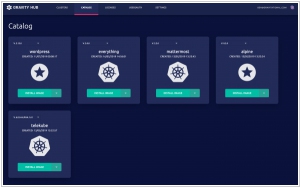
As we navigate the increasingly complex multi-cloud landscape, a challenge arises when it comes to the portability of applications across different cloud environments. These applications often rely on specific capabilities provided by the cloud provider, along with various middleware software bundled with the infrastructure. Gravitational aims to address this issue and has recently announced a Series A funding round of $25 million. The company advocates for a solution where customers leverage Kubernetes, open-source software, and industry standards to develop their software. Instead of incorporating cloud dependencies from the outset, they encourage building programs that are platform-agnostic. Gravitational offers a couple of open-source cloud deployment tools, namely Gravity and Gravitational Teleport.
2017. Kubernetes comes to Amazon Web Services
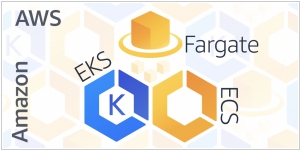
Amazon Web Services (AWS) has finally introduced support for the widely anticipated Kubernetes container orchestration system within its Elastic Container Service (ECS). Kubernetes has emerged as the de facto standard for container orchestration, enjoying support from Google (its incubator), Microsoft, and virtually all major cloud providers. Although AWS is somewhat late to join, it boasts a significant user base with over 100,000 active container clusters and millions of containers already running on its platform. While AWS users have already been utilizing Kubernetes on AWS, they lacked direct support from AWS. However, this new service will enable AWS to take charge of managing the container orchestration system. ECS for Kubernetes will ensure compatibility with the latest Kubernetes versions, with AWS handling upgrades and overall service and cluster management.
2017. Microsoft Azure shifts its focus to Kubernetes
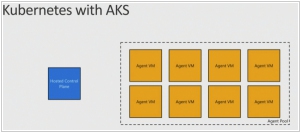
When it comes to container orchestration, Kubernetes is rapidly emerging as the standard of choice, even as Docker Swarm and Mesos/Mesosphere DC/OS carve out their own specific roles. For a considerable period, Microsoft advocated for its managed Azure Container Service (ACS), highlighting its support for multiple orchestration tools. However, there has been a shift in strategy, and Microsoft is now rebranding the service as AKS, with the 'K' representing Kubernetes. While AKS itself is offered at no cost, it's important to note that you still incur charges for the virtual machines (VMs) responsible for running your containers. This differs from the pricing model of the Google Container Engine, which imposes a flat fee per hour and cluster on its platform. While the fee may be relatively small, it's worth noting that it is not entirely free.
2017. Pivotal, VMware and Google forge container partnership
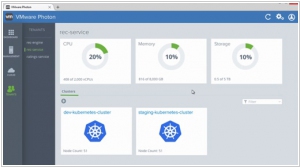
Pivotal, VMware, and Google have joined forces for a containerization initiative aimed at simplifying the creation, deployment, and management of container projects on a large scale. Google brings its open-source container orchestration tool, Kubernetes, to the collaboration. Pivotal contributes the Platform as a Service component with Cloud Foundry, while VMware adds a management layer to seamlessly integrate all the elements. Google will offer this solution as part of the Google Cloud Platform, with Pivotal and VMware incorporating it into their sales strategies. Additionally, there is a possibility that Dell-EMC, the parent company of Pivotal and VMware, might bundle this offering with their hardware products.
2016. Google launches a more scalable and robust Kubernetes

Google has introduced the latest iteration of its open-source orchestration service, Kubernetes, which aids in deploying, scaling, and managing software containers. Version 1.3 of Kubernetes primarily focuses on enhancing scalability and robustness for users managing containers in production environments. Furthermore, Kubernetes now offers support for additional emerging standards, including CoreOS's rkt, as well as standards proposed by the Open Container Initiative (OCI) and Container Network Interface (CNI) initiatives. This update empowers users to establish services that span multiple clusters, extending to multiple cloud platforms if desired. Google highlights that this capability enables the creation of hybrid and multi-cloud scenarios, facilitating the development of highly available clusters that exhibit greater resilience against disruptions.
2015. Google Container Engine now supports the latest version of Kubernetes
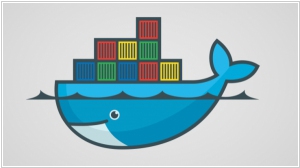
Google has unveiled updates to its Container Engine, a service designed to automate the management of clusters for container deployments. The latest version of Kubernetes (version 1.1) is now supported, bringing a range of performance enhancements that are accessible to Container Engine users. Notably, Container Engine now includes horizontal pod autoscaling, allowing for the addition of more servers to the cluster when necessary. Additionally, developers can leverage the newly introduced HTTP load balancer to direct traffic to different Kubernetes services based on traffic patterns. Google's team has also restructured the networking system with a focus on improving speed. This involved implementing native iptables into Container Engine, resulting in a significant reduction in CPU overhead and an enhancement in reliability, as stated by Google.

